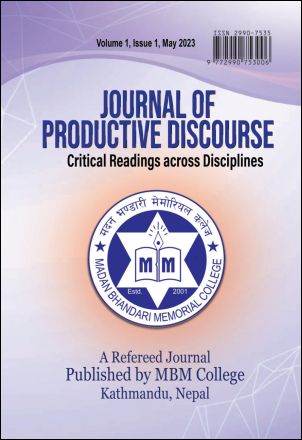(De) Construction of State Identity through Postcolonial Examination of Geography: A Case Study of Nepal
Keywords:
Colonialism, Postcolonialism, Geography, Identity, NepalAbstract
Postcolonialism on geographical studies encompasses scholarships that draw on postcolonial perspectives to challenge forms of colonial and imperial domination of geographical narratives. The studies within and beyond geography have construed how colonial discourse and discrimination have distinctive spatial dimensions and special effects on the (de)construction of the identity of the states. Thus, applying postcolonial lenses and examining colonial and Eurocentric geographical narratives, the paper aims to deconstruct the state identity. First, the paper introduces postcolonial studies to geography by way of a review of the literature. Then, the paper reviews the Eurocentric geographical architecture to establish modern geography as a western or colonial creation. Additionally, the paper provides a colonial justification for those geographical constructs and paves the way for de-mapping the Eurocentric geographies. Notably, the paper takes a unique case study of Nepal and examines the colonial geographical frameworks the British East India Company constructed during colonisation in the Indian subcontinent. Likewise, the paper outlines the consequential colonial geographical narratives formed due to the colonial discourses and the postcolonial explanation of Nepal’s identity. In the end, the paper presents Nepal’s native geographical identity by comparing Divya Upadesh with that of the colonial narratives. In conclusion, the paper emphasises the Eurocentric and colonial geographical penetration into the knowledge system to construct a state identity and postcolonial approach as the method of deconstructing those identities of the state.
Downloads
Downloads
Published
How to Cite
Issue
Section
License
Copyright (c) 2023 Manish Jung Pulami

This work is licensed under a Creative Commons Attribution-NonCommercial 4.0 International License.
This license allows reusers to distribute, remix, adapt, and build upon the material in any medium or format for noncommercial purposes only, and only so long as attribution is given to the creator.




